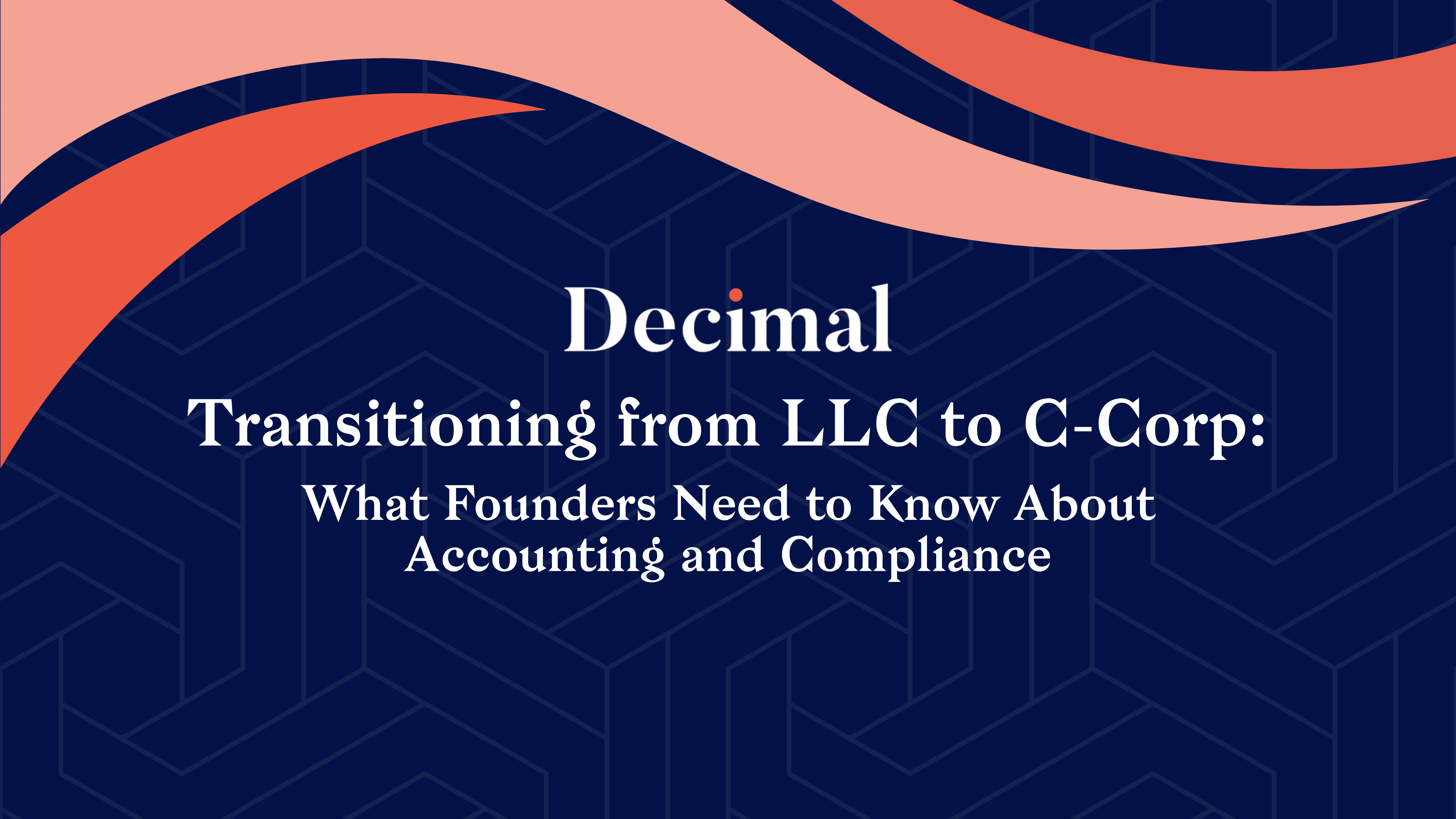Why Businesses Convert from LLC to C-Corp
The C-Corp structure is often favored for high-growth businesses due to:
- Access to venture capital: Institutional investors typically require C-Corp status for equity financing.
- Stock issuance flexibility: C-Corps can issue multiple classes of shares, employee equity, and convertible notes with cleaner mechanics.
- Eligibility for QSBS (Qualified Small Business Stock): This allows shareholders to exclude up to $10M in capital gains under IRS Section 1202.
- Long-term scaling potential: Public offerings and sure M&A exits are easier to structure under a corporate model.
However, the transition involves more than updating your operating agreement.
Key Accounting and Tax Considerations
1. Treat the Conversion Like a Liquidation
From an accounting perspective, converting from an LLC to a C-Corp often triggers a deemed liquidation of the LLC. This means:
- The LLC's books must be closed out as of the conversion date.
- Assets and liabilities are revalued and transferred to the new entity.
- Any retained earnings, tax basis, or capital accounts are adjusted to reflect the corporate structure.
This can create taxable events for owners—particularly if the LLC holds appreciated assets.
2. Set Up a Clean Chart of Accounts in the New Entity
The financial statements of an LLC often include equity structures like "member capital," "distributions," or "draws," which don't carry over to a C-Corp.
After conversion:
- Replace member equity with common stock, additional paid-in capital (APIC), and retained earnings.
- Remove owner distributions and instead track salaries or dividends.
- Adjust any owner loans or contributions for formal treatment under corporate governance rules.
This reset is key to implementing GAAP-compliant accounting and closing out any old or unclear balances.
3. Reassess Payroll, Benefits, and Tax Elections
Corporations are taxed separately and subject to different payroll and income tax treatment.
Be sure to:
- Register the new corporation with the IRS and obtain a new EIN.
- Close out the LLC's payroll system and re-enroll employees under the new entity.
- File final returns for the LLC (Form 1065 or Schedule C) and begin filing Form 1120 for the C-Corp.
- Consult a CPA on making the proper elections for federal and state treatment.
This prevents duplicate payroll filings, misaligned tax payments, or missed reporting deadlines.
4. Adjust Your Cap Table and Equity Records
LLC equity may include capital percentages, profits, interests, or informal agreements. These do not translate 1:1 into a corporation's stock-based cap table.
When converting:
- Determine how member interests will convert to shares (e.g., based on valuation or proportional ownership).
- Draft and approve a new corporate cap table.
- Re-issue all equity with proper documentation and board approvals.
If your company plans to raise capital post-conversion, a clean and investor-ready cap table is essential.
5. Reconcile Deferred Revenue and Contracts
If your LLC collected customer payments in advance, those liabilities carry over to the C-Corp. Similarly, outstanding contracts may need to be assigned to the new entity.
Steps to take:
- Identify deferred revenue balances and confirm carryover in the C-Corp's books.
- Update customer/vendor agreements with the new entity's name, tax ID, and banking details.
- Review subscription terms or contracts tied to the original LLC for novation or consent clauses.
This ensures revenue recognition remains compliant and customers aren't confused by invoicing changes.
When to Convert (and When to Wait)
Entity conversion should be timed around strategic milestones:
Ideal Times to Convert:
- Before raising a priced equity round
- Before issuing employee stock options (under a 409A valuation)
- Before applying for QSBS eligibility
Consider Delaying If:
- You have significant appreciated assets that could trigger a taxable gain
- You're closing out fiscal year-end reporting
- You need more time to clean up historical books or owner distributions
Your finance and legal advisors can help you build a conversion timeline that minimizes disruption and tax exposure.
Conclusion
Converting from an LLC to a C-Corp is a pivotal moment in a startup's journey—but it's not just a legal filing. It's a complete shift in how your finances, taxes, and equity are structured. Getting the accounting right ensures your books stay audit-ready, your investors stay confident, and your growth plans remain on track.
If you're looking for expert guidance to simplify your tax filing process, schedule a time with a Decimal expert at https://www.decimal.com/contact-us. We'll help you build a transition plan that aligns with your growth and compliance goals.
Getting started in days.
Ready to simplify your accounting? Schedule a call with our team and explore your options. We’d love to hear from you!

